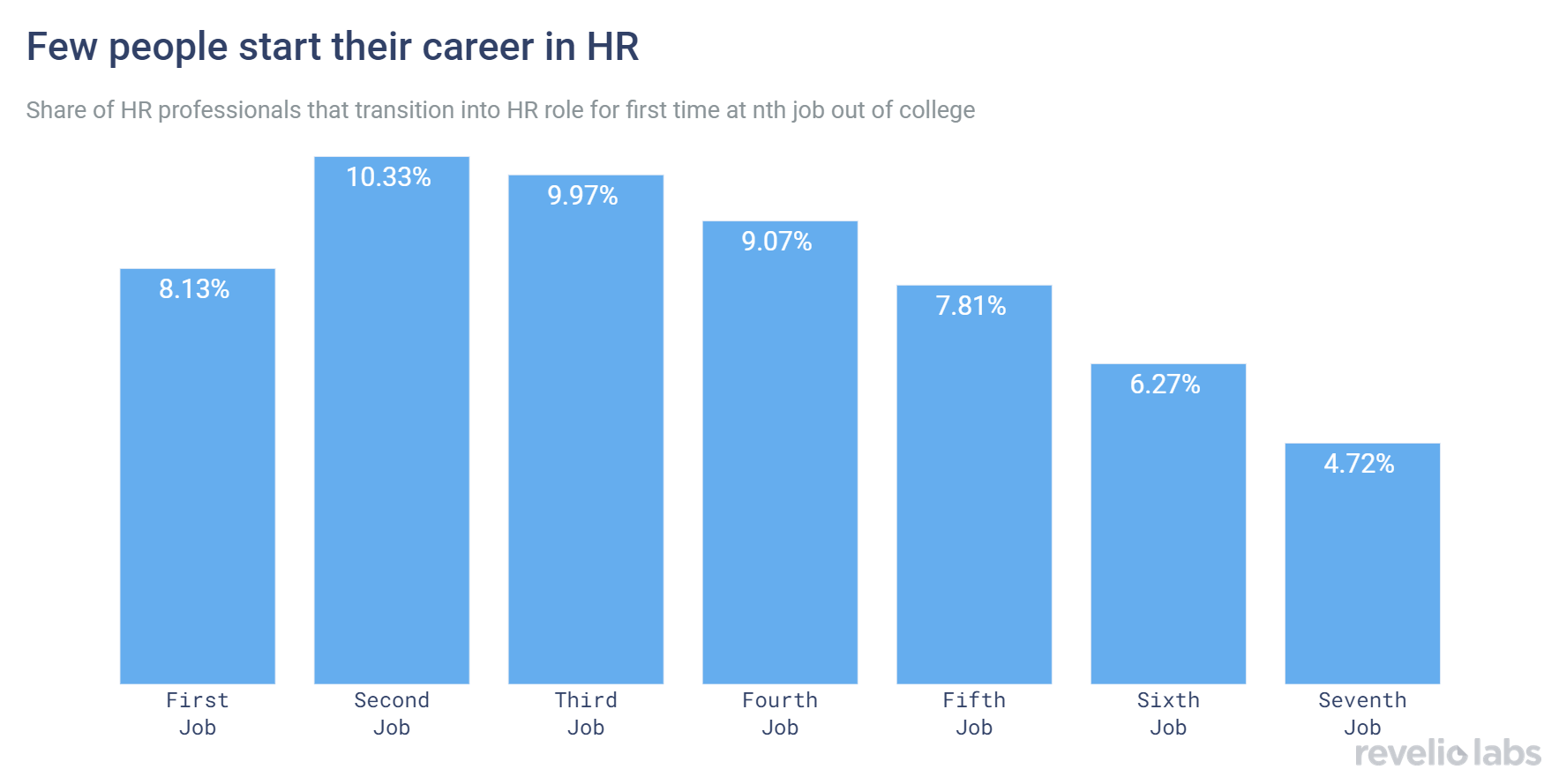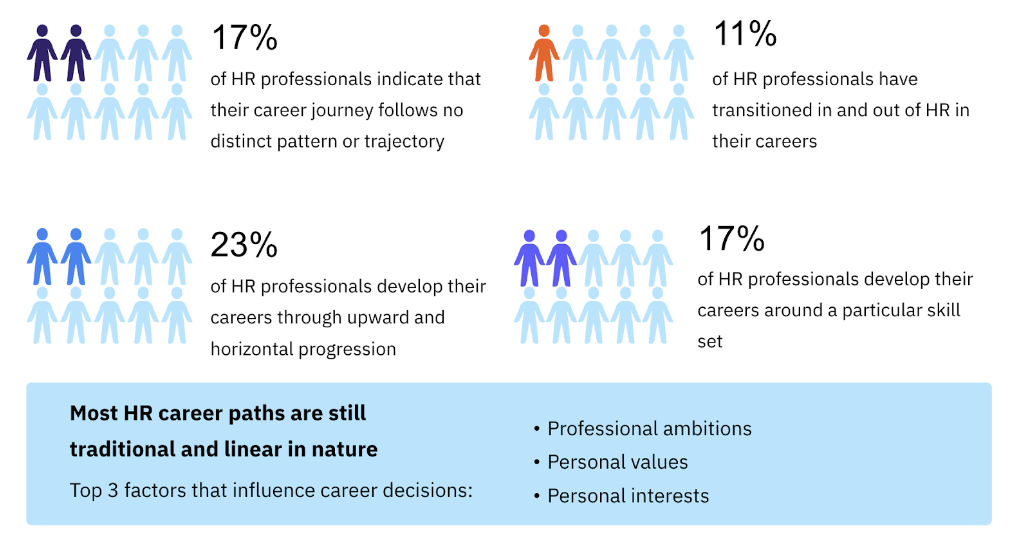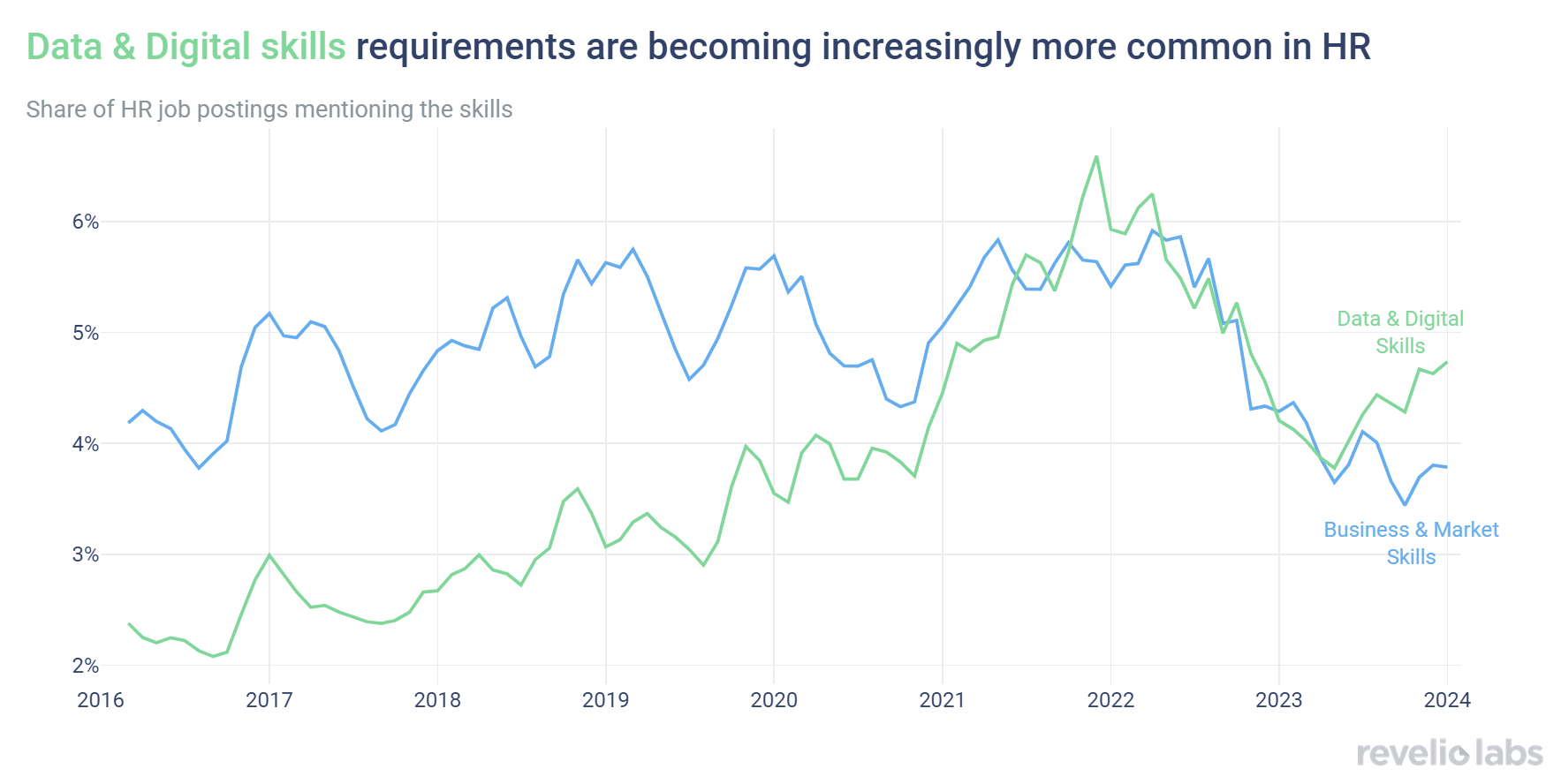Do Little Kids Dream of HR Careers?
HR needs to solve its own human resources needs

HR remains a small corporate function, despite its growing importance in a market that requires greater focus on issues like employee engagement, fostering a culture of innovation, or adapting to the demands of a remote workforce.
HR needs to invest in its talent pipeline, as entry into HR careers is often unplanned and unstructured. Few people start out their career wanting to go into HR and 17% of individuals reported their careers in HR don’t follow a distinct path or trajectory.
Data and Digital skills are becoming increasingly important in HR, requiring new talent to enter the domain or upskilling of the current HR workforce.
The world of work has experienced significant changes in recent years, and it's poised for further disruptions driven by labor concerns, talent shortages, and the impact of AI on work. In this rapidly evolving landscape, the role of HR becomes increasingly crucial in driving organizational success. Using Revelio Labs data and curated surveys from Academy to Innovate HR (AIHR), we analyze the current state of HR talent and ask whether the HR profession is ready to tackle the upcoming challenges looming ahead. The full report is available here.
Despite its importance in preparing a company's talent for the future, HR comprises a relatively small portion of the workforce. In the US, less than 2% of employees work in HR functions. What’s more, the current HR talent pipeline is lacking the strength needed to power its growth. Our labor market analysis shows that HR careers are often unplanned and unstructured, with only 18% of HR professionals starting their careers in HR, either as a first job or a second job.


Most HR career paths are still traditional and linear in nature, meaning professionals steadily climb the ranks within a specific HR domain, comprising 32% of respondents. 23% of HR professionals experience non-linear careers with upward and lateral progressions between different HR areas of expertise. However, as many as 17% of individuals reported their careers in HR don’t follow a distinct path or trajectory, and another 11% reported transitioning in and out of HR throughout their careers. This reinforces the unstructured nature of many careers and the need for reigniting a strong and stable talent pipeline.
Sign up for our newsletter
Our weekly data driven newsletter provides in-depth analysis of workforce trends and news, delivered straight to your inbox!

As emerging challenges such as labor shortages and the rise of generative AI reshape the workforce, the role and expectations placed on HR are also evolving. Data and digital skills are becoming increasingly important. The share of HR job postings mentioning these skills has substantially grown since 2016, peaking in 2022 with 5.59% job postings mentioning these skills. As of May 2023, Data and Digital skills have surpassed Business and Market skills, signaling a strong shift in the requirements for HR professionals. In order to effectively address these shifts, HR must broaden its talent pipeline and provide upskilling opportunities for existing employees.


There is no question that the future of HR holds the potential to make a substantial impact on both organizations and individuals. However, the HR profession must acknowledge and address some of its systemic barriers and challenges to reach this potential. Our labor market analysis indicates the need for a step change to prepare for future needs and ensure HR's impactful evolution, driving change within and beyond organizations. This requires a reinvention and repositioning of the HR profession, a reignition of HR careers, and the development of HR professionals.

